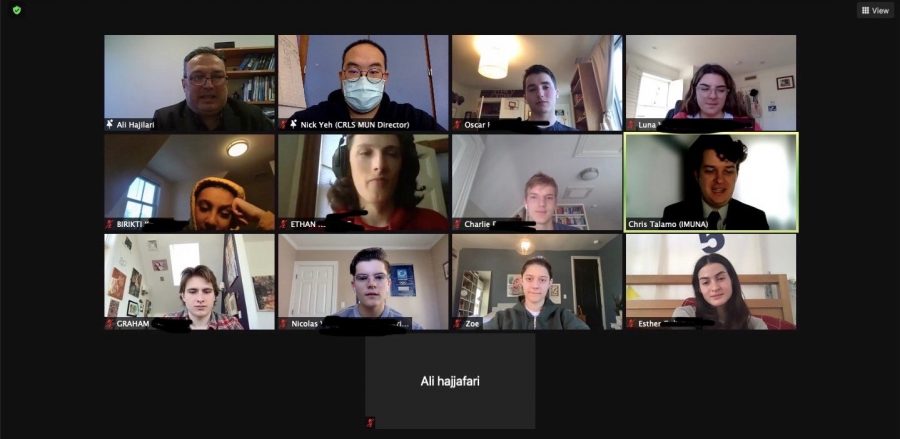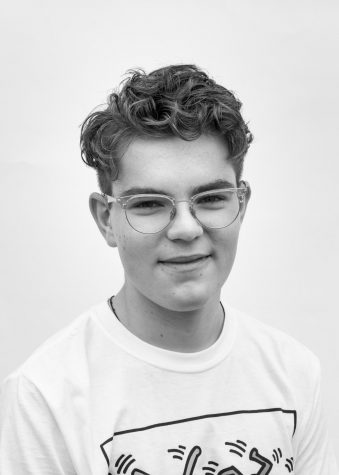Biden, the Middle East, and the Iranian Delegation at CRLS
Permanent Representative of Iran to the UN, Majid Takht-Ravanchi, visited the CRLS Model UN Club.
March 27, 2021
The Iranian nuclear issue is the focus of international attention today. A global agreement, known as JCPOA, was signed on July 14th, 2015 after long negotiations between the Obama administration and the Iranian government with an ultimate goal of nuclear non-proliferation. It was less than three years later that Donald Trump announced, on May 8th, 2018, the unilateral withdrawal of the United States from the agreement, bringing great tension between the US and Iran. Having unsuccessfully shown its willingness to remain within the framework of the agreement, and obtaining no tangible results from it, Iran ended up announcing, on May 8th, 2019, that it no longer considered itself constrained by all the commitments contained in the JCPOA. The United States then increased its pressure on the country by stepping up the sanctions against Iran.
It was against this tense background that Joe Biden announced his willingness to resume negotiations with Iran. Iranian leaders demand the end of all prior sanctions, while the United States hopes to make it a condition that Tehran immediately revert back to respecting the commitments contained in the 2015 agreement. From this point of view, the agreement, valid for three months, signed on February 21st between the Director General of the International Atomic Energy Agency (IAEA), Rafael Grossi, and the government of Hassan Rouhani is a positive sign that indicates a definite evolution in the handling of this delicate matter.
A subsequent demand was placed on Iran by Washington, aiming to reopen negotiations by integrating two new conditions which did not appear in the JCPOA, that of the regional policy of the Islamic Republic and that of its ballistic missiles. The very fact that these two issues were never addressed in the 2015 agreement casts, to say the least, a shadow over Joe Biden’s desire to truly find a negotiated solution. There is nothing more urgent than to come back to the terms, all the terms, of the JCPOA. However, it is unlikely Tehran can agree to negotiate to have its regional policy dictated by the US, as Biden has noted in past talks.
Taken together, these elements show a real shift in US policy in the Middle East. Nevertheless, it would be unwise to rejoice too quickly. Joe Biden will not revolutionize the fundamentals of his country’s policy in the region and the structuring alliances will be maintained.
Now, where does CRLS fit in all of this? In preparation for the National High School Model United Nations (NHSMUN) conference that took place from Friday March 5th to Monday March 8th, members of the MUN club had the incredible opportunity to speak with international-level diplomats. This year, the CRLS club represented the countries of Brazil and Iran at the General Assembly. Fabio Cunha Pinto Coelho, Second Secretary of the Permanent Mission of Brazil to the UN, was the first to present a mission briefing to the CRLS club. Most interestingly though, the Permanent Representative of Iran to the UN, Majid Takht-Ravanchi, came to speak to the club and took questions. Although instructions were given not to provoke discussion between the US and Iranian situation which is unraveling currently (as noted above), the meeting challenged our own perspectives. Students noted a real sense of hope for the achievement of the UN Sustainable Development Goals. Questioned on issues ranging from increased hope with the new administration to developing sustainability despite having sanctions, Mr. Takht-Ravanchi answered very gracefully. This interaction between CRLS students and the diplomats of the world may not have meant much in the current status of affairs between the US and Iran, but it did give hope that a new generation of diplomats, growing in a more globalized, developed, and polarized world will find a way to unite for common sustainable progress.










